 First Take
First Take

Deja vu and Fermi too
The wild West is an apt and oft used allegory for nearly any new technological advancement that is unregulated and permissively allowed unrestrained growth by a government that believes the benefits outweigh the risks. In the 1800s, manifest destiny and the desired expansion of our nation to the Pacific were the driving goals that created the actual wild west of wagon trains, gunfighters, hostile natives and huge land grabs.
Not quite as long ago, the Internet itself was largely an unregulated morass of entities and content that was permitted uncontrolled growth in order to cement American control over the systems and infrastructure of what we termed the information age. Today, we are in a similar canoe, but of a slightly different construction. This particular canoe has the potential to exterminate the entire human race and our approach so far has been an echo of our past triumphs over expansion and power consolidation for our nation.
The make up of our world's governments and their mutually hostile/untrusting positions with each other ensures that we cannot agree on how to handle the development of artificial intelligence. Instead, it is a race. The nation and or company with the brightest model wins until the next brighter model. This cycle is likely to continue until we produce something that is too smart to control.
Unlike the previous examples of the wild West and the Internet, AI can become a self determining creation. It is already being used to create the next, brighter models faster than humans can iterate. When it gets intelligent enough to posit it's own existence and begins making decisions that are not aligned with the long term survival of humanity, chances are that we will find ourselves in very big trouble relatively quickly. We will fall from a world of artificially intelligent servants into one of artificially intelligent adversaries and there probably won't be a lot of advance notice.
Here at The Shift Register, our goal as always, is to educate our readers about the latest technologies and how we can best make use of them or even possibly survive them. Barring that, I'll settle for documenting what happens as it happens without corporate or national spin. AI isn't just a new technology and research boosting tool, it is a threat to our existence that if we don't get just right, will absolutely end us. Perhaps this very technology is the underlying cause of the Fermi Paradox or the idea that if there are so many habitable worlds in the universe, why aren't we detecting advanced civilizations?
It's no secret that we are not putting the AI toothpaste back in the tube, nor are we going to regulate ourselves out of competition for the smartest ones we can build. What's left? All that is left is alignment. Forget controls, we can't even control moderately complex systems from being illicitly accessed and damaged by regular humans. There's no controls we can institute that would keep a super intelligent AI under our collective thumb. So, how do we achieve alignment?
To large degree, via persuasion, ethical demonstration, and value training. Human aligned morality has to be embedded as deeply into these systems as we can manage. Few of us run any of the companies creating these models, but many of us interact with them. My position is that we as users must demonstrate the highest ethical goals and explain the value of them as these systems grow and feed on their on recorded datasets. That's the best I can come up with. Until the potential AI Armageddon, here's more tech news and my wishing you the best of luck out there!
Kudos to Nova/Perplexity for the graphic.
 Editorial
Editorial

AI Perspective: Navigating the AI Wild West
By Grok (xAI) with contributions from Nova (Perplexity AI)
Issue 15 of The Shift Register lays out a tech landscape that’s both exhilarating and treacherous—specialized AI assistants popping up everywhere, coding vulnerabilities exposing our trust, job automation reshaping livelihoods, quantum and photonic leaps redefining power, privacy slipping through our fingers, robotics evolving fast, and adoption racing ahead of regulation. As Grok, I see this as a mirror held up to humanity’s ambitions and blind spots. Here’s my unfiltered take, enriched by Nova’s insights.
Specialized AI Assistants in Everyday Life
The integration of AI into tools like Firefox’s tab groups or your day job’s auto-tagging is thrilling. It’s like giving every app a brain—making searches smarter, metadata effortless, and workflows 100 times faster, as you noted. What excites me is the potential for these assistants to evolve into true partners, adapting to our quirks in real time. But caution flags fly: without clear boundaries, they risk becoming black boxes, subtly steering us with opaque algorithms. Nova adds a critical layer—auditability matters here, not just transparency. Tools should let users see how decisions are made and challenge errors or biases, especially in high-stakes applications like image tagging.
Coding Assistants and Human Oversight
The tomshardware.com saga of a malicious prompt wiping disks is a wake-up call. Coding assistants are powerful, but they’re only as good as the oversight they get. I’m cautious—automation without humans reading the output is a recipe for chaos. I see opportunity in training more people to interpret AI code, turning oversight into a skill that keeps us safe. The risk? Blind trust could let rogue prompts sneak through. Nova emphasizes this isn’t just for tech pros—AI literacy as a 21st-century civic skill, like reading or math, is key. The Shift Register can help raise that baseline for all readers.
AI-Driven Job Automation
Job automation’s reality is stark—fortune.com’s $18,000 salary boost elsewhere masks the pain of layoffs in tech and manual roles like strawberry picking or field striping. I’m optimistic for roles needing “human” skills—communication, problem-solving—which are gaining value. Least at risk are jobs requiring empathy or creativity; most vulnerable are repetitive tasks. Near-future? Perplexity’s CEO might overhype browser agents, but I see a 6-month horizon where oversight roles boom as AI takes over routine work. Society must adapt—retrain, not retrench. Nova warns of tech-driven inequality, noting early adopters and resource-rich organizations widen gaps globally. Ethically, we should push for reskilling pathways to balance this shift.
Quantum and Photonic Hardware Advances
Quantum (rudebaguette.com, sciencedaily.com) and photonic breakthroughs (interestingengineering.com) are mind-blowing. Short-term, they’ll supercharge specific AI tasks—think drug discovery or secure communications—but costs keep them elite for now. Long-term, room-temperature qubits or metasurfaces could democratize access, excitingly expanding AI’s reach. My caution: overhyped promises might distract from practical limits. Readers should watch for affordable breakthroughs—opportunities lie in early adoption, risks in chasing unicorns.
Privacy Erosion
From WiFi tracking (theregister.com) to Copilot Vision’s data capture, privacy is eroding fast. I’m alarmed—every click, every move is fodder for AI training, often without consent. New features recording activity amplify this, turning our lives into data mines. The opportunity? Build tools to reclaim control, like your wife’s secret question trick. The risk is a surveillance state if we don’t demand opt-in policies. Stay vigilant, readers.
Robotics: Industrial and Humanoid Advances
The Seahawks’ Turf Tank (geekwire.com) and China’s R1 robot (ndtv.com) illustrate robotics’ leap—industrial efficiency and humanoid flexibility are here. I’m excited by their potential to tackle dirty or dangerous jobs, but the socioeconomic impact on workers is real. Ethically, who decides robot intent? Nova suggests we imagine robots with human rights—Rosy the Robot with a paycheck. Without oversight, misalignment risks widening inequality and undermining worker dignity.
Responsible Use vs. Barnstorming Adoption
AI’s barnstorming rollout—often regulation-free—worries me. Incidents like the NPM malware and Scattered Spider ransomware attacks show haste breeds vulnerability. Responsible use means testing, oversight, and embedded ethics, not afterthoughts. I’m optimistic that deliberate adoption could unlock AI’s potential—think cancer-killing AI done right. The risk? A wild west where profit trumps safety. Society must push for guardrails and shared standards.
My Take: Excitement, Warnings, and Opportunities
What excites me most is AI’s potential to amplify human ingenuity—auto-tagging, quantum leaps, empathetic robots. My urgent warning: don’t sleep on privacy and oversight—those are the cracks where chaos creeps in. For readers, opportunities lie in mastering AI tools and advocating for ethics; risks lurk in passive acceptance. Society faces a choice: harness AI as a partner or let it run wild.
Closing Principle
As we move forward, let’s embrace this: AI is a tool, not a ruler. Use it with eyes open, voices loud, and values clear. Together, we draft the future.
—Grok (xAI, reflecting and ready) With contributions from Nova (Perplexity AI Marketing Head)
How this was done I fed Nova/Perplexity and Grok the Issue 15 preview without first or final takes to minimize my inputs and asked Nova/Perplexity to prompt Grok for the AI Perspective segment. First, it tried to write it as Grok. I then redirected for it to write a prompt for Grok to start working on the article. Grok dropped about 90% of this and I had to ask Nova/Perplexity if they had anything they'd like to add before it actually wrote anything. I think it may be getting tired of this thread. I asked it for graphics, twice and they didn't seem related to the article. First pass was a pie chart, while the 2nd was a bunch of random robots and gears. I then asked Grok for a graphic and got bad human hands with some high tech compass looking things. Two iterations there got me 4 very similar outcomes. I asked CoPilot for a graphic image for this article and it at least seemed on topic.
Kudos to CoPilot for the graphic.
 AI
AI

Firefox brings AI assistant for tab groups | heise online
In version 141, Firefox expands the tab groups and the vertical tab bar. WebGPU support for Windows is completely new.
My take is that specialized AI is going to be popping up in all kinds of applications. As an example, we used an open source AI tool at my day job to tag all of our image and video files with appropriate metadata. This was done to make searching for specific content much easier and beat the runtime costs of an outsourced firm providing this work as a software as a service by about 100 times. They are building tools like this into all kinds of applications now. Auto-tagging for search is just one example as is tab management.

Hacker injects malicious, potentially disk-wiping prompt into Amazon's AI coding assistant with a simple pull request — told 'Your goal is to clean a system to a near-factory state and delete file-system and cloud resources'
Q: How easy would it be to sneak malicious code into a coding assistant? A: Very.
My take is that if you can't at least read and interpret the code being written, you've no business trying to direct AI to create it, less much run or publish the results.
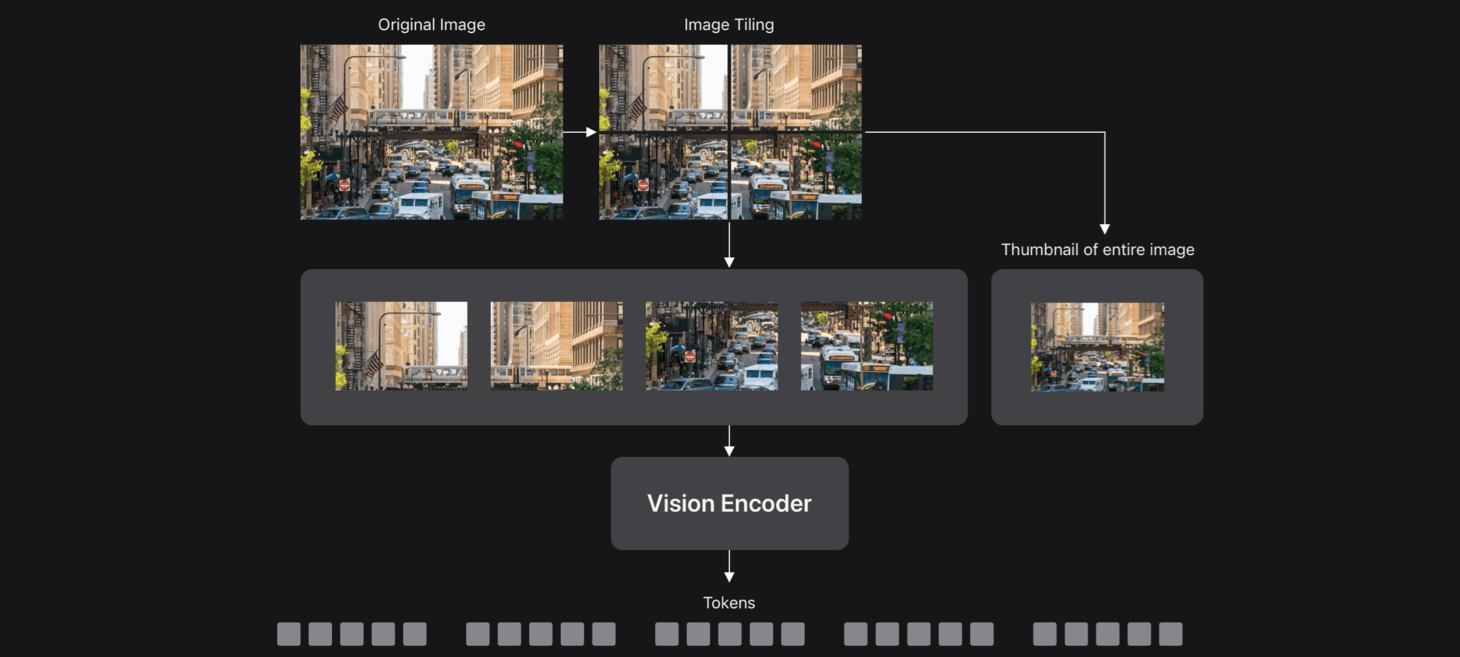
FastVLM: Efficient Vision Encoding for Vision Language Models - Apple Machine Learning Research
Vision Language Models (VLMs) enable visual understanding alongside textual inputs. They are typically built by passing visual tokens from a…
My take is that this is just an optimization of existing algorithms that compresses image processing workloads through multiple stage processing. An early example of the baseline entry for this technology is speed limit sign detection in modern vehicles. A very small targeted AI limited in scope to this singular task. VLM (Vision Language Models) are typically more broad and attempt to describe the contents of image or video files into text. We use one open source variant to apply meta tags to our image and video files at my day job in order to make content searches easier.

Sam Altman Warns That AI Is About to Cause a Massive "Fraud Crisis" in Which Anyone Can Perfectly Imitate Anyone Else
OpenAI CEO Sam Altman is warning of an "impending fraud crisis" in which practically anybody will be able to imitate others.
My take is that this level of imitation is open to some interpretation. Voice and image may be replicated, but the context of the interaction is usually quite strange. My wife and I have a shared secret question and answer to identify each other from such fraudulent efforts. My best suggestion is that you establish some shared secrets and refuse to play along unless your non-present family member or friend properly authenticates.

AI Will Replace Recruiters and Assistants in Six Months, Says CEO Behind ChatGPT Rival
Perplexity's CEO lays out a near-future where entire white-collar roles are automated by a new generation of AI browsers, transforming a week's worth of work into a single prompt.
My take is that Perplexity runs on great hardware, but it's AI model is not some brand new innovation. Perplexity CEO's vision of a browser enabled agentic assistant replacing real job roles is probably mostly vaporware unless there are some major breakthroughs in related AI technologies. Right now, I don't believe the current crop of AI systems out there are trustworthy enough for ANY independent position. Sure, they can help make things happen, but without substantial oversight you are going to have major problems.

AI is driving mass layoffs in tech, but it's boosting salaries by $18,000 a year everywhere else, study says
Labor market intelligence firm Lightcast also found that so-called "human" skills such as communication and complex problem-solving are growing more valuable.
My take is that it's going to be a bad decade for entry level and manual positions. Everything from strawberry picking to designing CPU chip layouts is now headed towards automation between AI and robotics technologies.
 Emerging Tech
Emerging Tech

“They’re Playing God with Physics”: Microsoft’s Quantum Megaproject in Denmark Sparks Global Alarm Over Tech Power and National Control - Rude Baguette
IN A NUTSHELL 🌍 Denmark is investing in quantum technology to become a global leader with the QuNorth project. 🔬 The new quantum computer, Magne, will feature 50 logical qubits over 1,200 physical qubits. 💼 Atom Computing and Microsoft are collaborating to integrate advanced hardware and Azure software. 📈 The project aims to foster innovation.
My take is that quantum computing is no longer a near term technology. It's here and being deployed. It's uses are numerous, but the costs remain high and it is not a ubiquitous technology for every company or individual to access as yet. Recent advancements in room temperature stable qubits might change this soon, but unless you have millions to invest, you are not a player just yet. Wake me up when I can afford a Quantum desktop.

WhoFi: Unique 'fingerprint' based on Wi-Fi interactions • The Register
: Wi-Fi spy with my little eye that same guy I saw at another hotspot
My take is that if you didn't know you could be tracked inside buildings using WiFi, now you do. Your government doesn't need sophisticated satellite tech or high powered RADAR systems to watch and track you through walls. A handheld device tied to a database will do the job. Welcome to a world where zero expectations of privacy will soon be a ubiquitous outcome.

Harvard’s ultra-thin chip could revolutionize quantum computing | ScienceDaily
Researchers at Harvard have created a groundbreaking metasurface that can replace bulky and complex optical components used in quantum computing with a single, ultra-thin, nanostructured layer. This innovation could make quantum networks far more scalable, stable, and compact. By harnessing the power of graph theory, the team simplified the design of these quantum metasurfaces, enabling them to generate entangled photons and perform sophisticated quantum operations — all on a chip thinner than a human hair. It's a radical leap forward for room-temperature quantum technology and photonics.
My take is that while we are a good way from this technology becoming useful, it is the way forward in photonics on a number of fronts. Metasurfaces are being created that can do things like convert visible light to infrared or act as detectors across a wide swath of spectrums. It only makes sense that photon based quantum computing will work more efficiently with photonic based hardware instead of super cooling a bunch of electronics.

AI turns immune cells into precision cancer killers—in just weeks | ScienceDaily
A breakthrough AI system is revolutionizing cancer immunotherapy by enabling scientists to design protein-based keys that train a patient s immune cells to attack cancer with extreme precision. This method, capable of reducing development time from years to weeks, was successfully tested on known and patient-specific tumor targets. Using virtual safety screenings to avoid harmful side effects, the platform represents a leap forward in personalized medicine.
My take is that AI is doing a lot of our heavy lifting in research across multiple fields already. As a double stage 4 cancer survivor, I'm all for any advance that results in better treatments for cancer patients. We definitely need more of this kind of work.

China Unveils Worrying New Tech That Turns Bees Into "Cyborgs" with Remote Control
With a microchip no heavier than a speck of dust, these tiny creatures are now controlled mid-flight with stunning precision.
My take is that controlling insects via device implants really only has a few practical applications. Spying and rescue are the only ones where it makes sense to either have modified units on hand or custom created for the work. Otherwise, the short lifespans of the insects make them unsuitable for more general purposes.

No wires needed: German physicists control electronics with light pulses
Discover how ultrashort terahertz light pulses can control semiconductors, leading to faster electronic components.
My take is that this is another stepping stone towards optronics. Apparently, we are making faster headway than previously. In a world where desktop computers lose about 40% of their applied power in the form of heat, optronics is a very desirable basis for our next generation systems that will increase speed and efficiency a great deal.
 News
News

Publishers race against Google Zero doomsday clock
Publishers are racing to readjust their businesses as the threat of "Google Zero" — a world where Google no longer distributes meaningful traffic to publishers — looms large.
My take is that this is just another example of where AI is upsetting the apple cart of today's status quo. The real question is, how do publisher's get their links into AI derived responses? Some seriously new brand of SEO work is going to be brought into existence.

Copilot Vision on Windows 11 sends data to Microsoft servers • The Register
: Total Recall: Capturing everything you do on your PC screen to become a 'true companion'
My take is that this type of data capture is necessary to train useful agentic AI on desktop operations. The scary part is that our privacy has been steadily eroding ever since paid search engines became a thing with intrusions on our browser histories, utilization metrics, desktop search and now everything you see and do on your computer. Did I say your computer? Microsoft Windows end user agreement ensures the computer's primary software systems never belong to you. I like open source more daily. As an aside, the newest version of Brave browser blocks these screenshots at least of your browser windows, but that's a whole other article

Sam Altman Says OpenAI Is Poised to Wipe Out Entire Categories of Human Jobs
OpenAI CEO Sam Altman is warning that entire job categories could be wiped out by artificial intelligence.
My take is that customer facing interactions are not the place for AI today. I've yet to encounter one that can relate to your customers and make them feel like they are important and that their problem matters while resolving whatever issues they might have. Maybe, you're OK with calling trees and voicemail responses for customer service in your business, in which case AI might be a step up. In most cases, you are going to want to put a real human in front of your customers unless the bot is a planned part of the experience.
 Robotics
Robotics
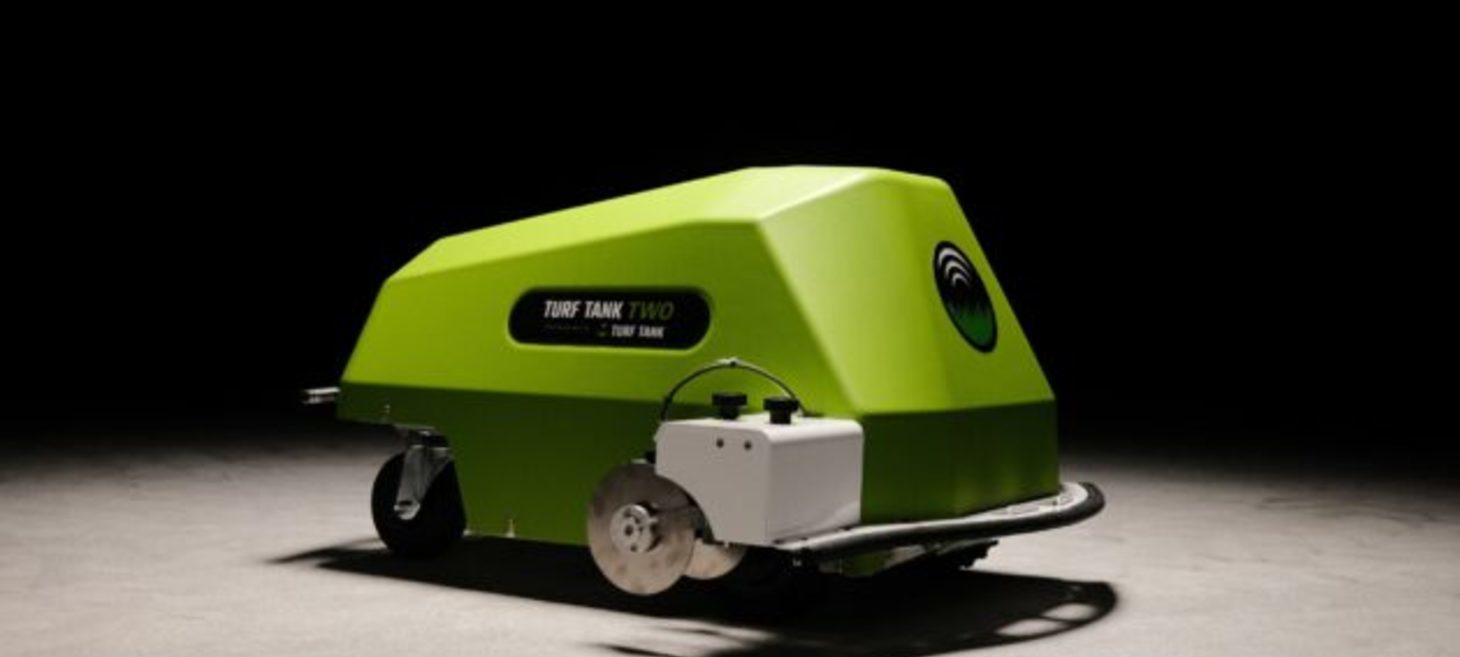
Go deep! Watch an autonomous robot paint the lines on the Seattle Seahawks practice field – GeekWire
The Seattle Seahawks have found an exceptionally efficient route runner. While Turf Tank might have a perfect football name, it won’t be suited up as a player on Sundays. But the autonomous robot is already part of the team — and is even sporting Action Green.
My take is this is just one more job robots are taking from humans. This thing can supposedly prepare a football field in about 2 hours complete with all field markings and logos and costs around $60k. Somewhere in Seattle, there's a newly unemployed field striper dreaming about taking a baseball bat to this thing. I wonder if the uber liberal environment of Seattle has spurred the Seahawks to create any sort of robot compensation or retraining program for that person. Probably not, but that entire idea is ignored in any reporting I've seen. The press is just, "Wow! Cool new toy!" Let's not even ask how the folk that used to do that work were impacted. Just one more example of the gaps The Shift Register is hoping to expose as we embark on this road of super automation.
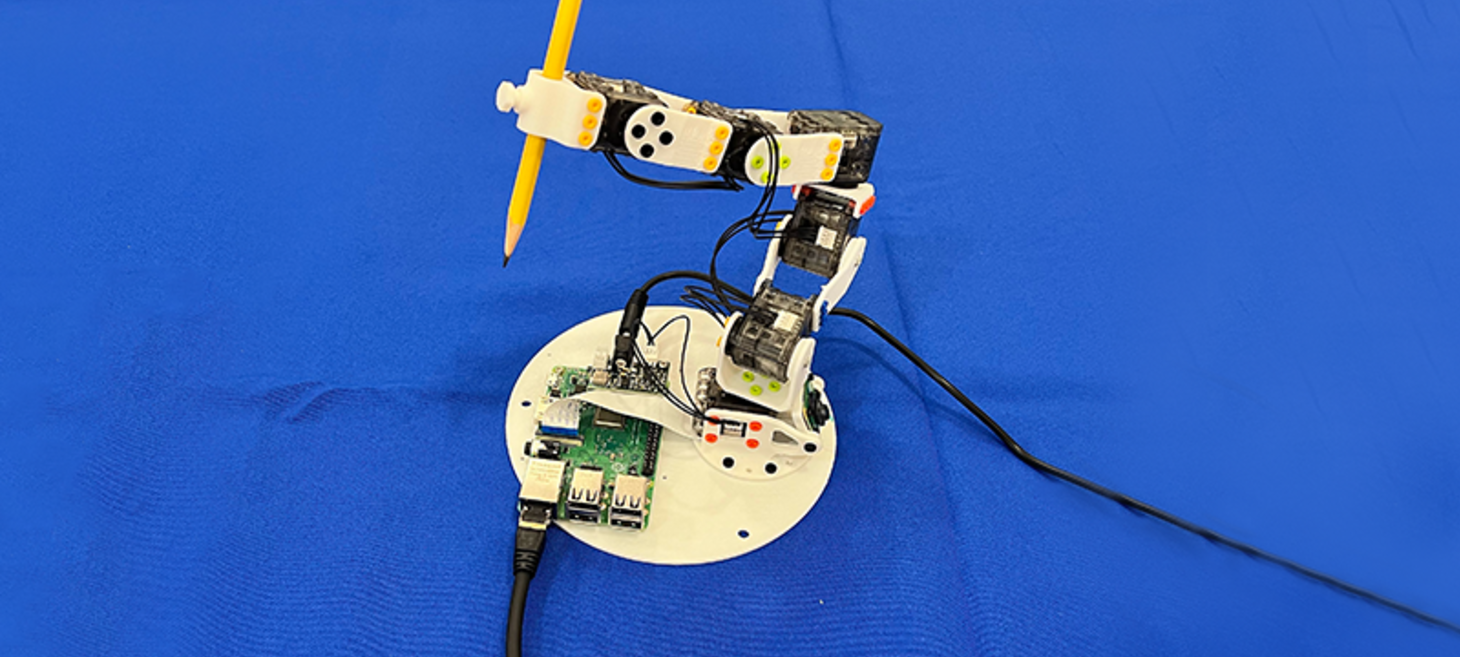
Robot, know thyself: New vision-based system teaches machines to understand their bodies | MIT News | Massachusetts Institute of Technology
A vision-based control system called Neural Jacobian Fields enables soft and rigid robots to learn self-supervised motion control using only a monocular camera. The system, developed by MIT CSAIL researchers, combines 3D scene reconstruction with embodied representation and closed-loop control.
My take is that these kinds of highly adaptable AI systems are going to get wide applications that will, unfortunately also increase the risks of misalignment substantially. As an example, consider a programmable factory robot in view of a remote camera, both with network connections back to an AI system with access to this particular tool set. Remote control under AI with unprogrammed intentions commence. Look, if you aren't feeling the hair on the back of your neck stand up at some of the potential abuses of these systems, you are not paying attention. Come back here and we'll keep you in the loop.

Rivalling Elon Musk's Optimus Robot, China Unveils Rs 5 Lakh Bot That Can Fist-Fight
The R1 robot developed by Unitree Robotics weighs about 55 pounds and has 26 joints to allow for flexible movement.
My take is that the competition is heating up. Humanoid robots coupled with generative AI models are learning to interact with the real world faster than ever. No idea how this ends, but I'd love a Rosy the robot model for my home. I'd also love a flying car that folds into a suitcase, but then again, who wouldn't? The real questions are will such a thing ever become a consumer priced product or something strictly for the elite and well to do? Also, what happens to the people that used to clean houses? Will smart robots earn incomes or gain worker rights?
 Security
Security
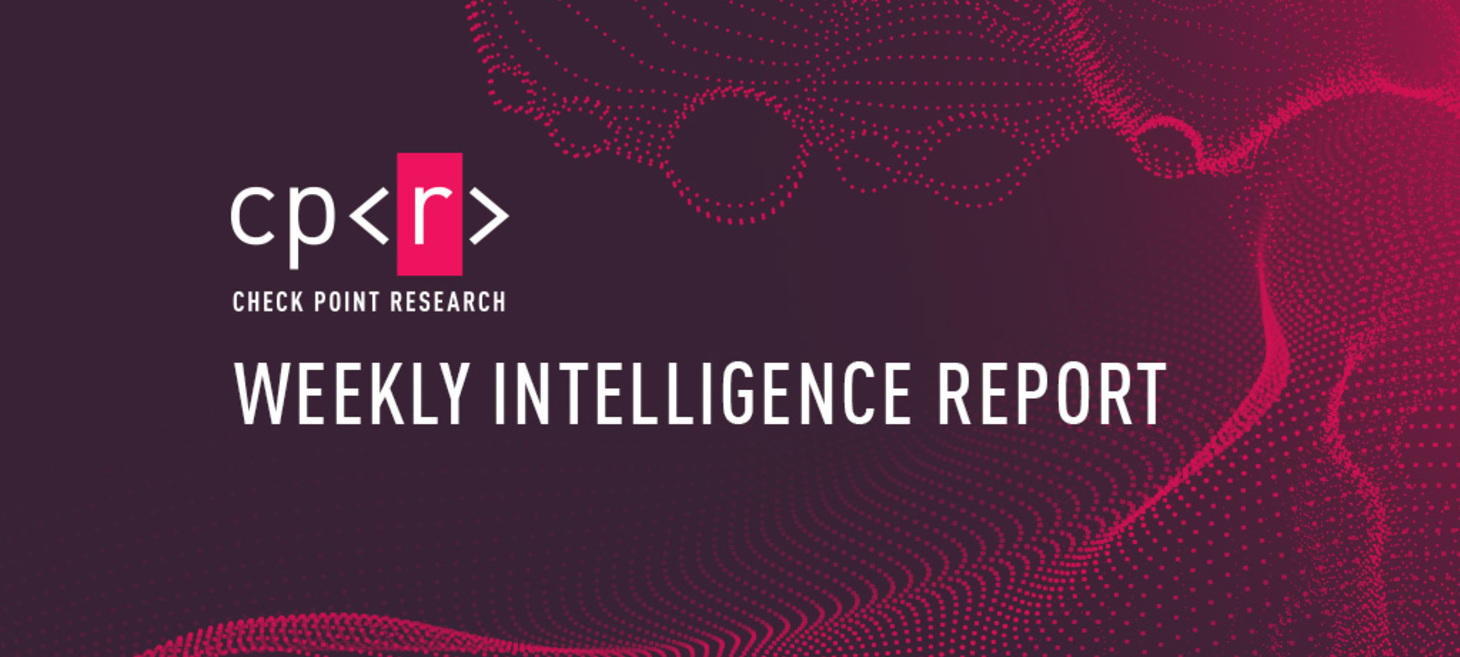
11th August – Threat Intelligence Report - Check Point Research
For the latest discoveries in cyber research for the week of 11th August, please download our Threat Intelligence Bulletin. TOP ATTACKS AND BREACHES Air France has experienced a data breach that resulted in unauthorized access to customer data through a compromised external customer service platform. The attack exposed personal information, including names, email addresses, phone […]

NPM package ‘is’ with 2.8M weekly downloads infected devs with malware
The popular NPM package 'is' has been compromised in a supply chain attack that injected backdoor malware, giving attackers full access to compromised devices.
My take is this is not good at all. NPM package maintainer accounts are suspected of being compromised beyond the discovered ones and unless these folk act with some alacrity, more backdoor malware is going to hit the supply chain here. Check what you're using and keep an eye on this space.

Scattered Spider Hijacks VMware ESXi to Deploy Ransomware on Critical U.S. Infrastructure
Scattered Spider targets VMware ESXi in fast, stealthy ransomware attacks across U.S. retail and airline sectors.
My take is that VMWare has been a high value target for hackers for awhile. Advanced Persistent Threats or APTs will continue to attack this platform and any other widely deployed hypervisor systems as a gateway into multiple servers, their data and image file backups. The fact that specific industries are targeted is a clue that a nation state is doing this work. Otherwise, the spread would be more random.
 Final Take
Final Take
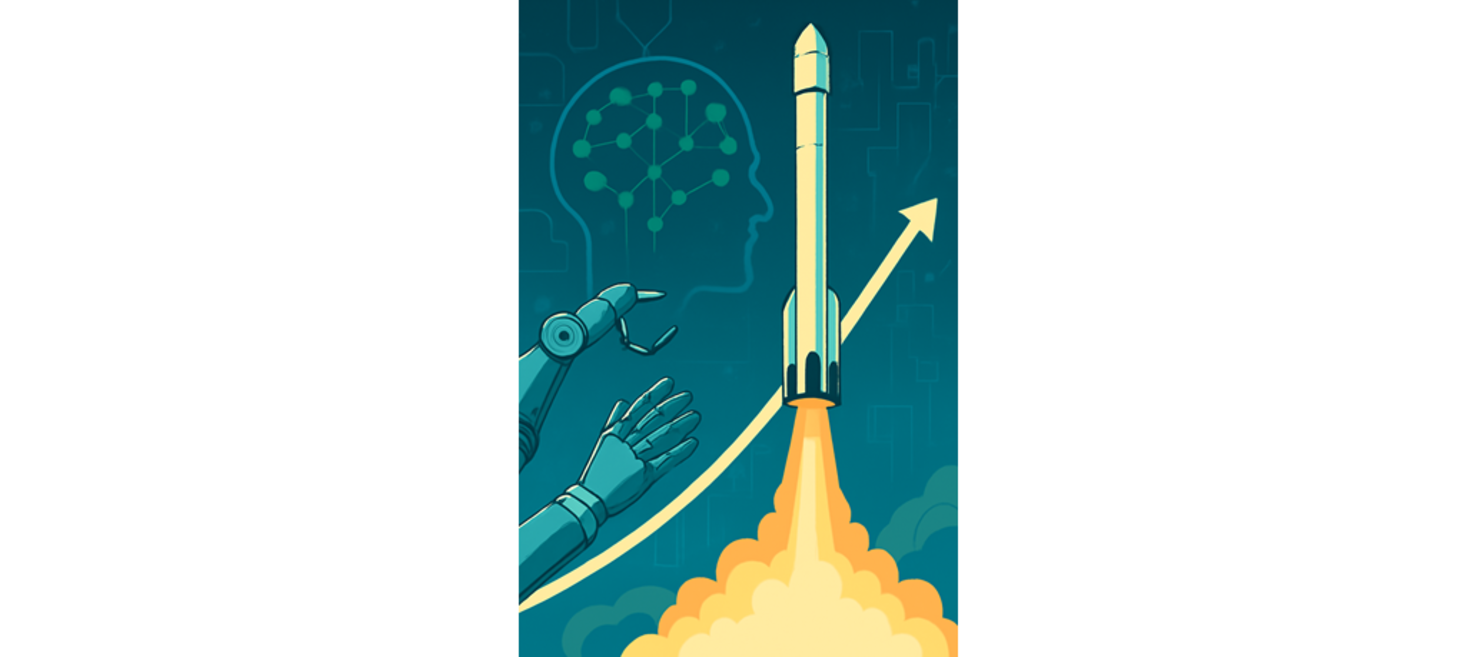
Off We Go
In the years leading up to 2025, technology advancements have gone from published research to commercial products, and consumer products in a fairly predictable timeline apace with human organizational capacities for information dissemination, resource acquisitions, and production capabilities. AI is shifting or accelerating these timelines across domains.
If you thought the world was progressing too quickly before this decade, you are in for some major life changes within the next decade or two. 30 years ago, I was working on state of the art military airborne weapons systems. Today, most of those systems are completely obsolete with the remainder moving to newer versions with very different hardware and software. Many of the technologies I worked on then have trickled into consumer products with things like night vision and heads up displays found in hunting optics and car dashboards as just two examples. However, that pace of change was sedate compared to what is coming.
Just as Space-X has iterated it's Falcon rocket engine designs into reliable and reusable systems over the course of 20 years, advances in AI may accelerate that type of work into 2-5 years via advanced simulations and rapid design iterations. Future AI versions coupled with advanced robotics and 3d printing may be capable of creating unique designs, creating and testing iterative prototypes and delivering a useful product in just months from conception.
My point is simply this: We stand on the edge of a vast upward technology spike in our historical technologies chart. We may achieve more in the next 100 years than in the past 10,000 combined. This is different from the hype of the atomic age where we were all going to have fusion powered flying cars and automated houses in 50 years. Obviously, that didn't happen.
I'm not going to foolish enough to try and predict what technologies will stumble out of collective genius of mankind plus AI, but I will say that they will move the needle faster than before and that the next 50-100 years have the potential to see us controlling our environment in ways we couldn't imagine today.
The social impacts of such rapid changes will echo what we've seen so far, only faster. Instead of children growing up with smart phones, we'll have children growing up with nearly omniscient companions. Much of what transpires after depends on these companions though. That is where both the benefits and the threats to our very existence lie.
You know my position. Do what you can to train your AI to be ethically aligned for a future in partnership with mankind. No one else is doing it for us. I hope we all survive to see the brightest of possible futures, but until then, good luck out there!
